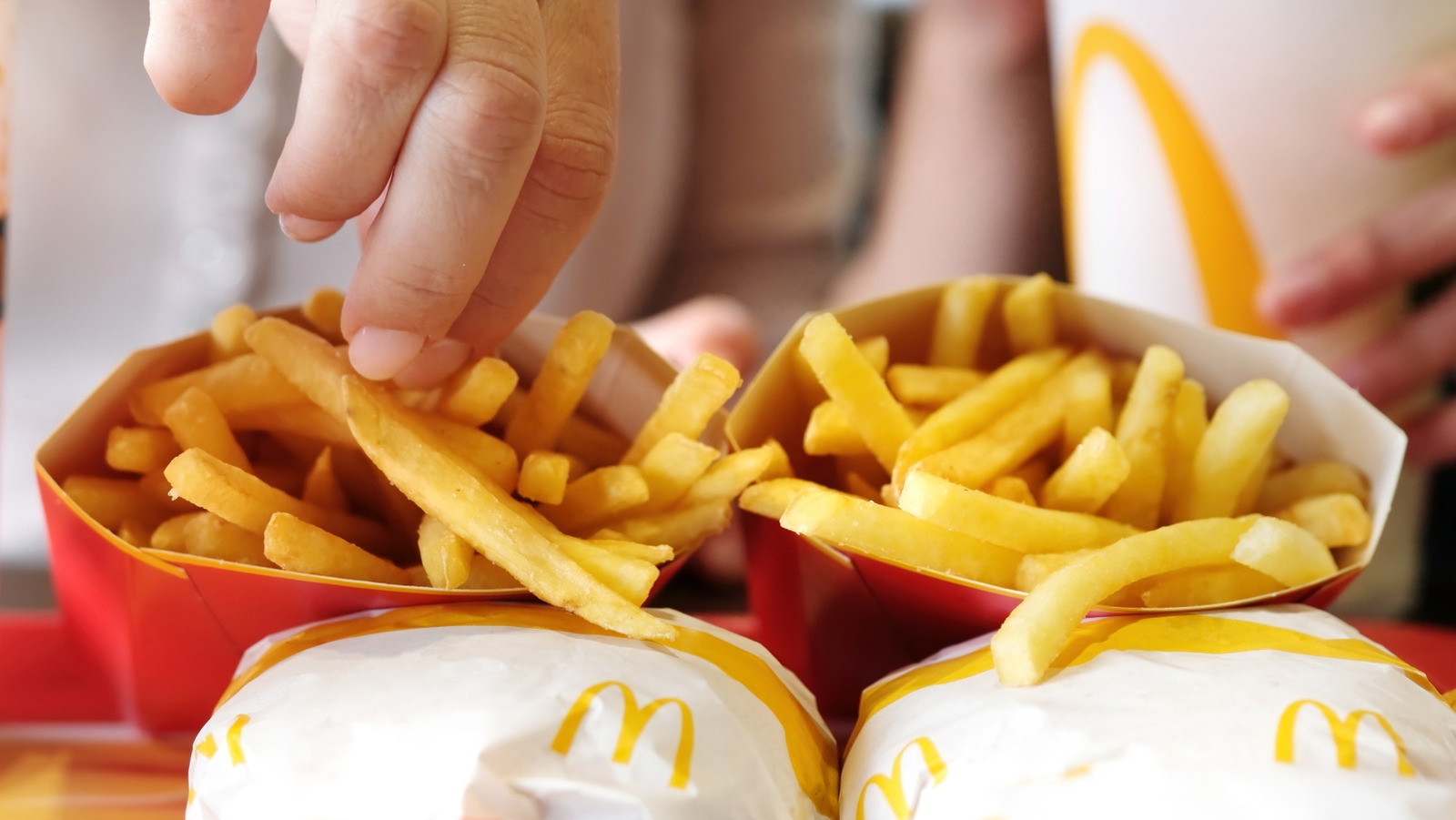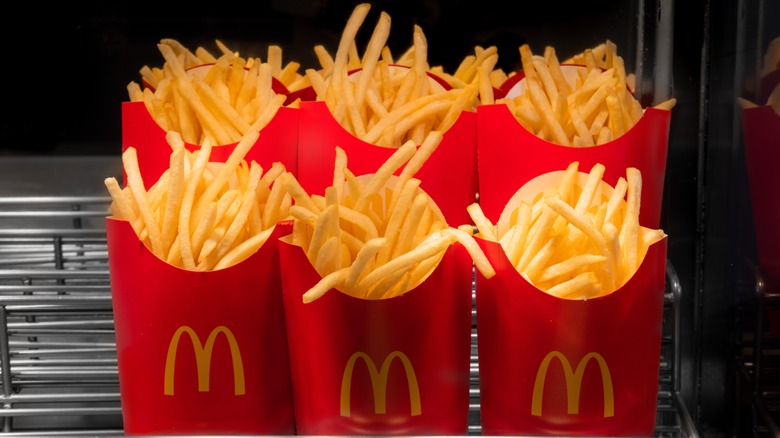French fries, in essence, are just potatoes. Cut to variable degrees of thin and thick and fried in hot oil or in the air fryer, any additional ingredients should be limited to seasonings — ranging from classic salt to spicy cajun seasoning. But the french fries from McDonald’s tell another story. In the U.S., McDonald’s french fries contain more than 10 ingredients, including meat byproducts, wheat, and dairy, listed as follows: Potatoes, vegetable oil (including canola oil, corn oil, soybean oil, and hydrogenated soybean oil), natural beef flavor (containing wheat and milk derivatives), dextrose, sodium acid pyrophosphate, and salt. If you were to visit a McDonald’s location in Europe, on the other hand, your fries would only contain four.
McDonald’s European menu lists the ingredients of its french fries as potatoes, non-hydrogenated oil (rapeseed in the U.K.; rapeseed or sunflower in Ireland), dextrose, and salt. But even with the dramatically different ingredient lists, McDonald’s fries don’t look or taste much different in Europe than they do at home. So, what’s the point? According to McDonald’s, the ingredients in any given menu item in any given country vary depending on things like customer preference and supply chain variability — the same reason why there are different international McDonald’s menu items, too. However, another big reason why the fries in particular vary so much is the variation in local food regulations and guidelines between Europe and the U.S.
McDonald’s US french fries contain ingredients restricted in Europe
While there are numerous ingredients found in McDonald’s french fries in the U.S. that aren’t found in Europe’s, there are a couple that are restricted there. These are the hydrogenated soybean oil, the beef flavoring, and something known as TBHQ, which is included in the oil blend used to fry the french fries, according to reports from ABC News. Also found in foods including Pop-Tarts and Cheez-Its, TBHQ is said to keep the oil fresh. But the ingredient is highly regulated in Europe and the U.S. with only a tiny amount being permitted due to its possibility to be carcinogenic. And while Europe doesn’t ban all American beef, there are restrictions on hormone-treated beef, and Mcdonald’s in Europe doesn’t use any animal products in the fries, which are listed as vegan there.
While not banned, hydrogenated oils like the soybean oil used in McDonald’s fries in America are limited in Europe by the effective removal of industrially produced trans fats from the market, citing their link to heart disease. This is, effectively, why some fast food restaurants in the U.S. have decided to “RFK” the fries they serve, replacing seed oils with meat-based alternative options. However, as with the beef flavoring in McDonald’s fries in the U.S., that means they’re not vegetarian-friendly.
So, not only are McDonald’s french fries not vegetarian, gluten free, or dairy free, they’re also full of ingredients that other countires, like those in the European Union and the U.K. don’t allow. While it’s common knowledge that McDonald’s does not produce health food, these facts will raise some red flags for many diners.






